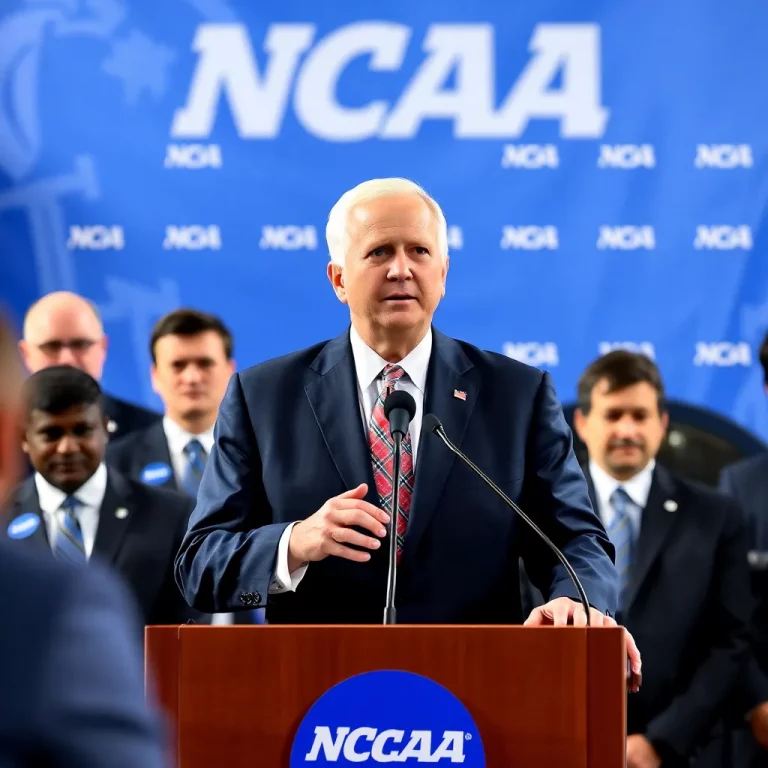NASHVILLE, Tenn. — In a pivotal address at the NCAA’s annual convention, President Charlie Baker laid out his vision for the future of college sports, emphasizing a combination of reforms and federal support. Speaking to a gathering of athletes, coaches, and administrators, Baker announced that the NCAA is prepared to allocate $1.2 billion over the next decade to settle a significant lawsuit that has the potential to reshape the industry.
Baker highlighted the necessity of Congress intervening to help navigate through crucial issues facing college athletics. “When I took this job, the message I heard from Congress was clear — fix what you control first,” he said. In his view, the NCAA has made strides to modernize the college sports landscape to better serve today’s student-athletes, but he pointed out that tackling every challenge on their own may not be feasible.
There are three main areas Baker urged Congress to address: the need to eliminate the dangerous prospect of athletes being considered employees of schools, a shift from over 30 different state laws to a single federal statute for college sports, and a request for antitrust protection to safeguard NCAA against lawsuits related to eligibility.
Baker noted some positive developments as several athletes have recently dropped cases that could potentially support union claims. Senator Ted Cruz from Texas emphasized the urgency, stating that college sports faces a crisis and that congressional action is critical to avoid chaos.
One of the factors driving Baker’s optimism is the preliminary approval of a settlement that allows schools to pay athletes directly for the use of their name, image, and likeness (NIL). If approved in April, schools could directly utilize approximately $22 million for these payments, a significant shift from the current model which relies on affiliated collectives.
Moreover, the settlement includes about $2.8 billion in back payments for former athletes who missed out on NIL benefits, with the NCAA set to cover around $1.2 billion of that total. Baker assured participants in the convention that the NCAA’s financial outlook is stronger than anticipated, projecting $277 million in ticket sales for upcoming championships, a marked increase from previous years.
TV revenue has also risen by 19%, with a boost of $180 million driven largely by the growth in women’s sports. A new measure under consideration would ensure revenue is shared among conferences based on women’s basketball performances, mirroring existing practices in men’s basketball.
While Baker’s speech lacked mention of the increasing push for more authority to be given to the biggest conferences in college sports, there remains discussion on expanding March Madness to allow more teams and potentially shifting command of the tournament to the top conferences. Such changes could further impact the competitive balance and the essence of college basketball as it stands today.


